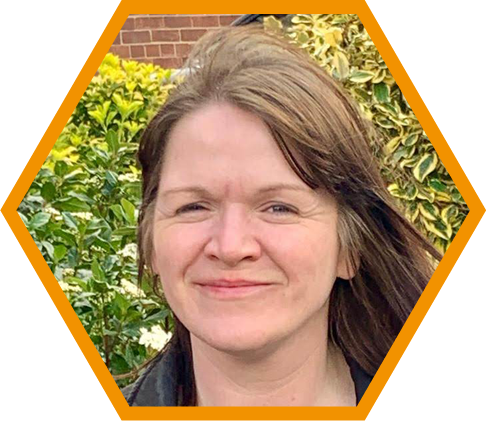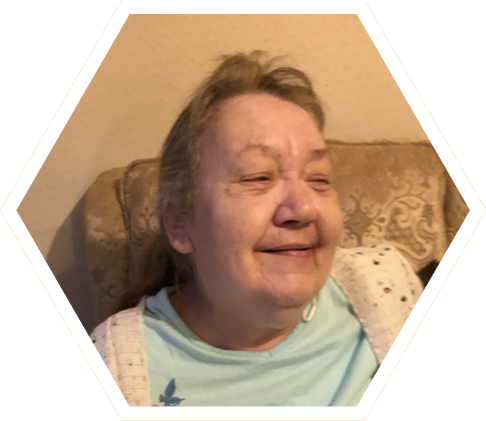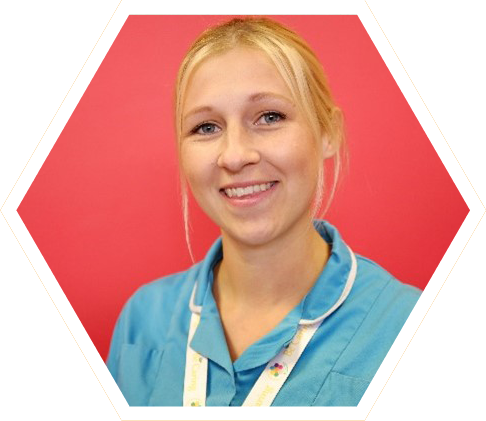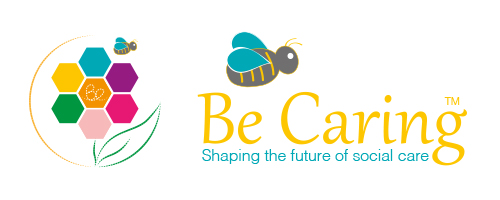

Sarah Keenan
Service Manager
LOCAL Leadership
“I moved into the Service Manager role at Be Caring Leeds around February 2020. It wasn’t long after that the world certainly took a very unique turn and we were faced with quite a scary and daunting situation, delivering care within a global pandemic. Like everyone, I was concerned about my own safety as well as that of my family, my colleagues, their families, and our service users. I don’t think I could have ever envisaged the amazing response from our army of Care Workers and colleagues who have worked so hard to protect themselves and those they have cared for. I am so proud of what they have all achieved and how we have all pulled together to ensure that those at greatest risk have been protected.”
Overview
We’ve been delivering care in Leeds for 8 years. We have over 140 colleagues providing more than 3,600 weekly hours of care and support every week to over 290 people, and their families, in communities across Leeds including: Chapeltown. Chapel Allerton, Meanwood, Harewood, Moortown, Seacroft, Roundhay, Harehills, Belle Isle, Middleton. Beeston, Holbeck, Oulton, Rothwell, Gildersome, Morley, Outwood, Ardsley and Robin Hood.
Metrics and Stats
People being supported
Colleagues who deliver the care they aspire to
Hours of care and support delivered every week
Number of colleagues
Colleagues that would recommend us as a place to work
Achievements
Over the past 18 months, we have focused our efforts on restructuring the office team, getting the basics right and building the foundations for the future – demonstrating that by giving our colleagues the security of salaried pay (as opposed to hourly pay), we can transform the culture, and as a result deliver a new model of care. By the end of August, we were employing more than 60 colleagues (42%) on block contracts.
Care in the Community

Sandra Foreman
Service User
“Be Caring have been coming round for a long time. They’re doing all they can for me now and are really good. It’s taken me a while to get this stage, but I feel like I have a good carer now, someone who knows their job and is kind.”
I have a regular carer, Amy, who comes round to see me twice a day. She helps me have a shower and makes me breakfast (usually toast and jam with herbal tea). Then on a night-time, she prepares my tea. She’s an absolute godsend! Carers also go shopping for me once a week and my neighbour pops in to make sure I’m alright.
Be Caring have been coming round for a long time. They’re doing all they can for me now and are really good. It’s taken me a while to get this stage, but I feel like I have a good carer now, someone who knows their job and is kind.
I have a few health conditions – diabetes, arthritis, and painful legs. At the moment my IBS is also playing up, but otherwise I’m fine. It affects me, but I take painkillers and put up with it. There’s nothing anyone can do about it so I just get on with things.
Because of my diabetes and the risks of me catching Covid, the doctors don’t want me going out. I’m getting a bit bored and fed up now to be honest and I’m hoping we won’t have to go into a second lockdown!
Our Priorities
TRANSFORMING CARE IN LEEDS
As a service, we’re well on our way to demonstrating how care can support people in their homes and their communities – that by being able to employ our colleagues on better terms and conditions, and pay them fairly, we will have a much happier, engaged and empowered workforce. We’ll continue to work collaboratively with our commissioners, system and community partners, to design and offer alternative funding and payment mechanisms that free resources in the system, while continuing to deliver better care for more people – within financial constraints.
OUTSTANDING CARE
We will achieve CQC Outstanding in at least one Key Line of Enquiry (KLoE) at our next inspection
We’ve made great strides, embedding systems and processes to maintain our quality and compliance in key areas of recruitment, training, supervision and support, care planning, risk assessment and care quality. We will continue to refine our office structure and have 2 Community Coaches, who conduct Best Practice visits, audits and provide additional shadowing and mentoring for Care Workers. This is focused aroundon care delivery – in particular, promoting person-centred care so that they know people’s preferences, champion choice, flexibility and control, and act promptly to respond to need. We’re confident that we will achieve at least one Outstanding KLoE and can already demonstrate, with evidence, the ways in which we have the characteristics of an Outstanding service, for example, we:
Use our data, evidence and expertise to make improvements
Have colleagues who are exceptionally kind and compassionate, going above and beyond to exceed expectations
Support community participation in and out of peoples’ home through the Community Teams pilot
Are well-led, with a strong, visible person-centred culture, delivering a service that is externally recognised and works collaboratively with others
COMMUNITY TEAMS
We will demonstrate the impact, affordability of the Community Teams model
Our partnerships with Leeds City Council and other health, social and voluntary sector organisations are laying the foundations for a new care model – to re-design care delivery and enhance the experience those people and families we support. We’re empowering our colleagues and creating the space for them to be embedded in their local communities. Our Care Workers will support people, with their families, to co-design their overall care from the beginning, moving away from task and time to a truly outcomes focussed, person-centred approach. This will be underpinned by our 7 Ways to Being Well model. The Community Teams pilot, will radically change the way we work in Leeds by:
Being part of the system, integrating with statutory partners including our Social Work and Community Nursing Teams
Achieving culture change, investing in our colleagues, paying them on a salaried basis and upskilling them with more and better training and qualifications including the Level 5 Assistant Practitioner
- Delivering care as part of a place-based, neighbourhood model aligned to Local Care Partnerships and working closely with the voluntary and community groups
SUSTAINED GROWTH
We will continue to attract and retain talent, helping us to consistently deliver more than 5,000 of care every week
To support our ambitions in Leeds, we know that we need to be able to sustain growth while ensuring we deliver Outstanding care. To truly transform care, we will invest in our workforce and strengthen the culture so that our colleagues know they are valued and are empowered to make safe and timely decisions. In Leeds, 92% of our colleagues think their work is valued and 76% of colleagues have received recognition for good work in the past week compared to 53% (February 2019).
To truly value our workforce, we aim shift all our colleagues onto block contracts by the end of March 2021 – meaning we will have a fully salaried workforce – giving our Care Workers the security of a stable and regular income. To achieve this, we need to deliver more care, for more people, within the current ‘overhead’ (our office team), which will enable us to move resources from the back-office to the front-line. In turn, this allows us to pay our Care Workers for time between care calls, so they can use time flexibly to support people in their homes and in their communities.
Our Colleagues: Meet Rachel

Rachel Gardner
Care Worker
Started: October 2018
“That’s my biggest advice to any new carer – put yourself in their shoes.”
I was looking after my Grandma, who’s got dementia, so I’ve always cared for family anyway. I’ve also got two young girls to look after. Before I applied, I used to think care meant working around the clock, but when I finally went in and talked to a few people, I realised it didn’t have to be like that.
My mum used to be a carer when I was younger, and what with my Grandma getting dementia, I wanted to learn more about how to deal with certain situations. You get told by doctors that dementia comes in different forms and nobody knows what the outcome’s going to be at the start. But I wanted to experience that for myself and learn the different ways of caring for someone with dementia.
Be Caring were very helpful – it wasn’t about what they needed, instead they listened to what I could give them. When they sent me an offer, I took the job straight away!
Because I see dementia in so many different forms – anything from slight forgetfulness to forgetting to eat – I feel I know a lot more about it now. I also did a mini-dementia course with Be Caring and learned a lot about how the brain works. It’s helped me better look after my Grandma, which is a good thing as she’s said she doesn’t want carers even though I tell her that’s what I do!
I’ve done a lot of reading online to try and understand what it’s like to have dementia. It helped me one day when I went into someone’s house and they wouldn’t walk into the kitchen. I thought, ‘there has to be more to this’. A lot of the research I did said that if the floor was shiny or a dark colour, then someone with dementia might see that as water or a hole in the floor. It made me realise they were experiencing something I couldn’t see.
I’ve recently taken on the role of team coach where I support other Care Workers. I also carry out ‘Be Supported’ meetings where together we look at any additional support our Care Workers need. Feeling supported is really important. If it’s your first time at someone’s house, you don’t know what to expect, so having a little chat beforehand and going through what to expect can help new carers feel more relaxed. A little bit of information goes a long way!
I’ve thought about branching out and learning more. I’m quite interested in maybe one day helping people who’ve had strokes – watching people’s rehabilitation with physio really interests me. If I could learn about that while doing care, combining it, something like that would be amazing.
Whatever happens, I could never have an office job, I’ve got to be doing things! Most days, it doesn’t even feel like I’m at work. It’s just like I’m going to visit family and helping them out! I especially love the times when I’m thanked by service users for what I’ve done, it feels really rewarding.
Building trust takes time – people like to know who’s stepping into their house, so I always take an interest in them and share information from my life too. It’s a very personal job. The people we care for need to know who we are and what we’re like. I’ll always put myself in their shoes and imagine how I’d feel if a stranger with a key to my house just stepped through the front door! That’s my biggest advice to any new carer – put yourself in their shoes.
A lot of people have been independent all their lives, so to have someone come in and do everything for them is hard. Occasionally, at first, someone won’t want me there. When that happens, I always sit down with them and reassure them it’s their home. I won’t do anything they don’t want me to do. Knowing that you understand how they feel goes a long way. They’ve got to trust you in their home. They’ve got to trust you’re there for them, even if it’s just for half an hour. It’s about them.
The main problem for our service users has been loneliness. They’d sit and watch the news all day, worrying about what’s going on and thinking ‘when will I see my family next?’ It’s been hard for them.
During lockdown, only having half an hour with someone was especially tough. Every Care Worker would’ve liked to have had longer to talk and interact more with service users as often we were the only people they saw all day.
The communication throughout Covid has been amazing though. We were getting texts and updates every day. If you needed more PPE, they’d bring it to you, so you didn’t have to go to the office. They were really good like that.
I think Care Workers have been absolutely brilliant – everyone seems to have just cracked on and done what needs doing. I’ve noticed Care Workers doing a lot of extra things for people – what a lot of families would normally be doing for them. Things like extra cleaning and shopping.



